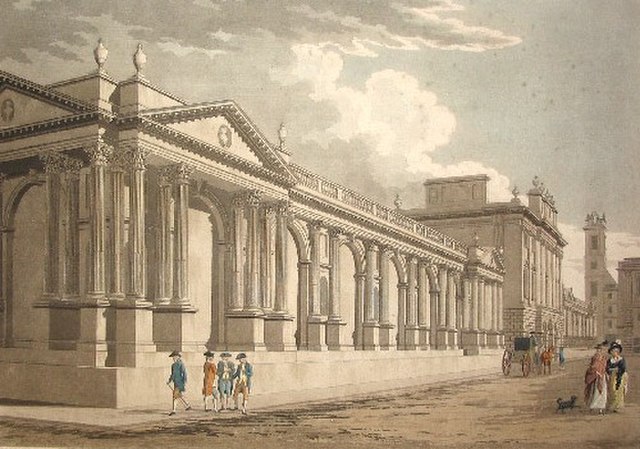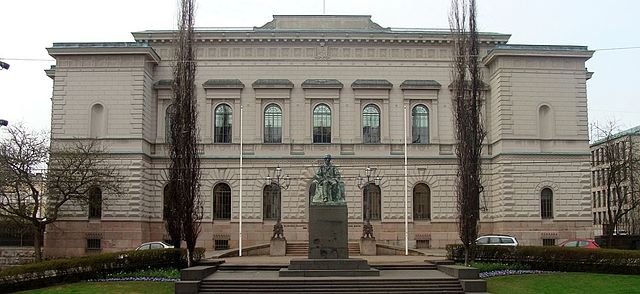Bank for International Settlements
The Bank for International Settlements (BIS) is an international financial institution which is owned by member central banks. Its primary goal is to foster international monetary and financial cooperation while serving as a bank for central banks. With its establishment in 1929, its initial purpose was to oversee the settlement of World War I war reparations.
BIS tower in Basel
Belgian statesman Léon Delacroix (1867–1929) was an early promoter of the BIS and died during the negotiations to create it
American banker Owen D. Young (1874-1962) played a central role in the conception and establishment of the BIS in 1929–1930
Bank of Italy Governor Bonaldo Stringher (1854-1930) chaired the BIS's founding meeting
A central bank, reserve bank, national bank, or monetary authority is an institution that manages the currency and monetary policy of a country or monetary union. In contrast to a commercial bank, a central bank possesses a monopoly on increasing the monetary base. Many central banks also have supervisory or regulatory powers to ensure the stability of commercial banks in their jurisdiction, to prevent bank runs, and in some cases also to enforce policies on financial consumer protection and against bank fraud, money laundering, or terrorism financing.
Walter Bagehot, influential 19th-century theorist of the economic role of central banks
Interior of the Llotja de Barcelona where the city's Taula de canvi was operated
The Bank of England in 1791
The Bank of Finland in Helsinki








